The DO’s and DON’TS of driving in wintry conditions
Winter is biting particularly hard this week, with much of the UK bracing for more snowfall over the coming days. As the gritters prepare to tackle treacherous roads, it's essential to prioritize safety during these challenging driving conditions.
While we strongly advise avoiding unnecessary trips in such weather, we understand that sometimes it's unavoidable. In this guide, we'll provide you with essential tips to ensure your safety when driving in snow.
DO clear your screen
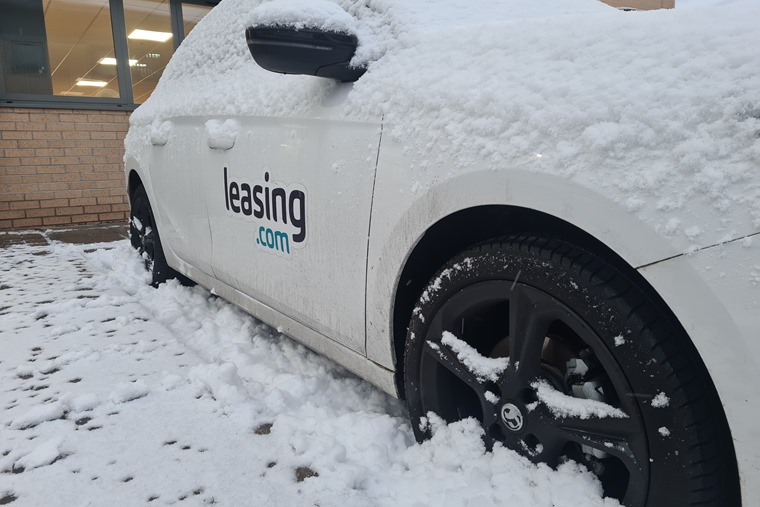
When the temperature drops below freezing, you're faced with a crucial task before hitting the road – de-icing. It's both hazardous and against the law to drive with obscured windows, so it's imperative to take your time and do a thorough job.
From unconventional methods like applying raw potato juice to your windscreen to placing a hot water bottle on the dashboard overnight, numerous myths circulate for solving this problem – check out our own solution below.
Although we’d still recommend investing in a high-quality scraper and a can of de-icer and keep them in your car at all times.
DON’T use boiling water to defrost
@leasing.com ULTIMATE 10 second frost hack #Freezing #Frost #FreezingWeather #Hack #Cars #CarsofTikTok #CarTok #Cars #CarHack #Saturday ? original sound - Leasing.com
While using hot water may speed up the process, we strongly advise against it, as rapid temperature changes can lead to expensive windshield cracking.
If you lease a Ford, you're in luck, as you likely benefit from heated windscreen technology, designed to rapidly de-ice your windshield.
DO start in a higher gear (in manual cars)
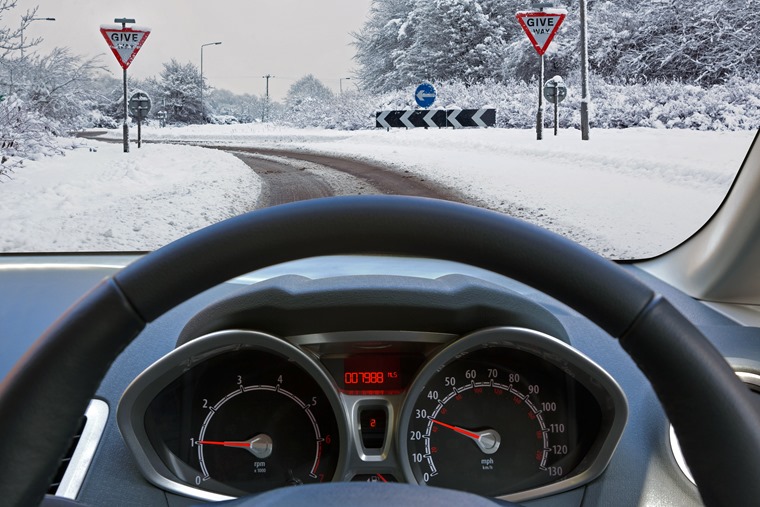
Driving in snow and ice can be especially challenging. When driving a manual car in these conditions, always try to pull away in the highest gear possible. While it may feel unusual and exert more strain on the clutch, it's the most effective way to avoid wheel spin when setting off.
Starting in a higher gear reduces torque and helps prevent wheel spin, which is particularly crucial when navigating slopes. If you have doubts about reaching your destination safely or the road appears treacherous, the best course of action is to leave your car at home.
DON’T rely on snow modes and all-wheel drive systems
There is no doubt that four-wheel drive systems like Audi’s Quattro can really help provide extra traction in adverse conditions. In fact, even more regular two-wheel drive cars are equipped with low-ratio “snow” modes or similar systems these days.
But you shouldn’t rely on them outright. In many instances, the tyres on your car will often have more effect on keeping you going than a four-wheel drive system. It’s also worth remembering that while all-wheel drive cars can help you set off, they won’t help when it comes to slowing you down.
DO slow down in the wet (as well as snow and ice)
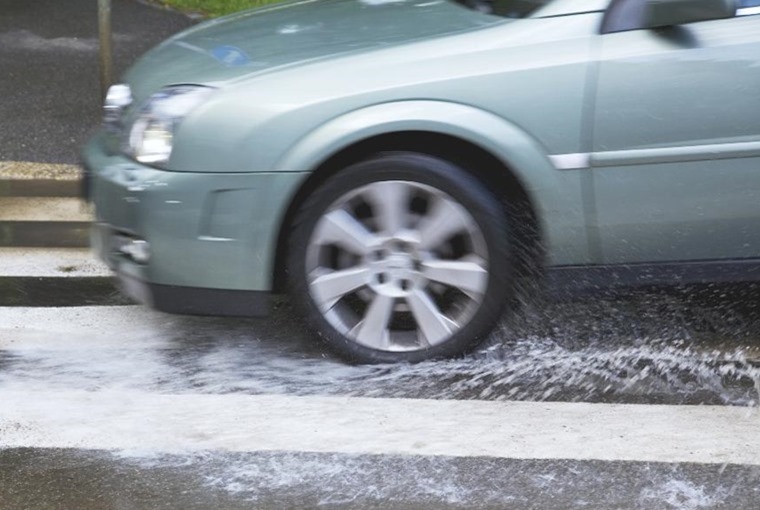
While the focus is on snow and ice, the UK's winter also brings wet roads into the mix. When snow and ice melt, roads can become waterlogged, increasing the risk of aquaplaning.
To prevent this, exercise caution when driving after heavy rainfall, be on the lookout for large puddles, and ensure your tires are in excellent condition.
DON’T stop halfway up a hill
Hills and inclines can be your worst enemy in snowy conditions. In some instances, it might not even be worth trying unless your car has all-wheel drive and winter tyres fitted.
However, if needs must, remember to avoid stopping part-way up an incline. That’s the nail in the coffin for any momentum you’ll have built up and can lead to you blocking the road.
DO carry out regular maintenance checks
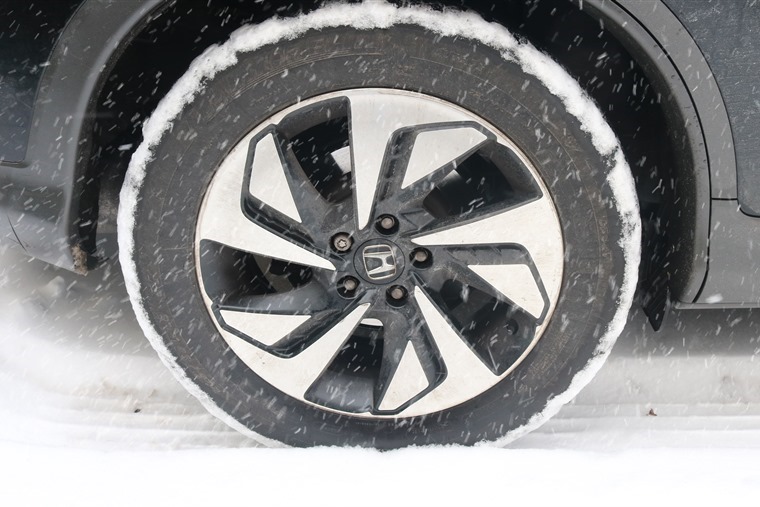
Winter weather places substantial stress on your vehicle. Sub-zero temperatures, salt-laden slush, and constant dampness can accelerate wear and tear. Therefore, it's crucial to ensure your car is in top condition before facing adverse weather conditions.
Start by checking your tire tread depth. Experts recommend a minimum of 2.5mm for winter conditions, though the legal limit is 1.6mm. Additionally, verify that all tires are at the correct pressure to enhance traction.
Keep your screen wash reservoir filled with dilatable screen wash containing antifreeze to prevent it from freezing. If you're unsure how to refill it, consult your car's manual.
Depending on your car's age, consider having a battery test conducted. If your car is under three years old or leased, this shouldn't be a concern. However, it's essential to address battery issues, as they are the leading cause of breakdowns in older vehicles.
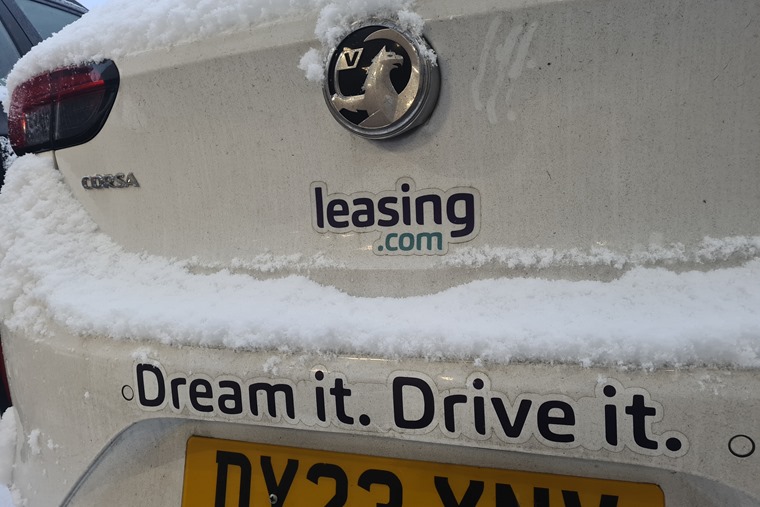
Stay safe out there
Winter can be demanding on both you and your car. By following these tips and prioritizing safety, you can navigate snowy conditions confidently. Thorough preparation and cautious driving are essential for a safe winter journey.
For the best personal lease deals in 2024, check out our latest top picks. Or jump straight into deals by hitting the button below.
Compare lease deals